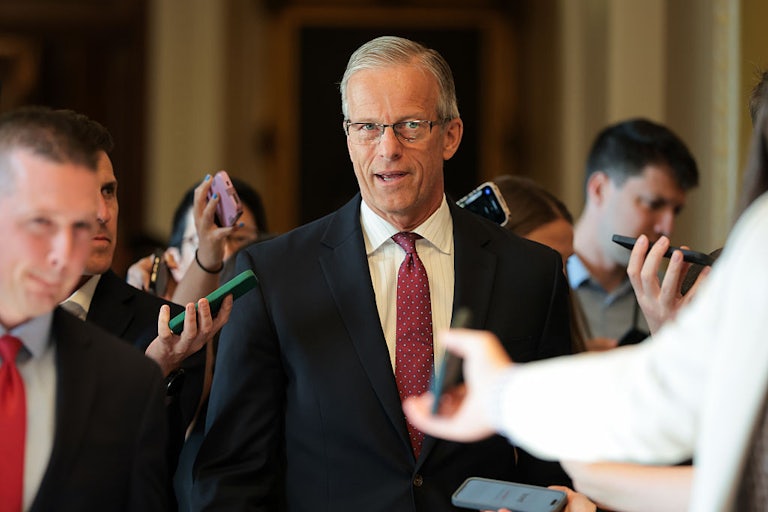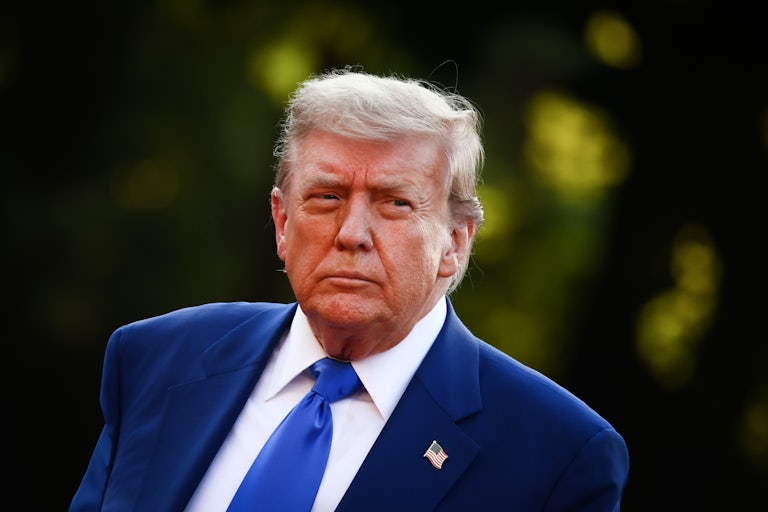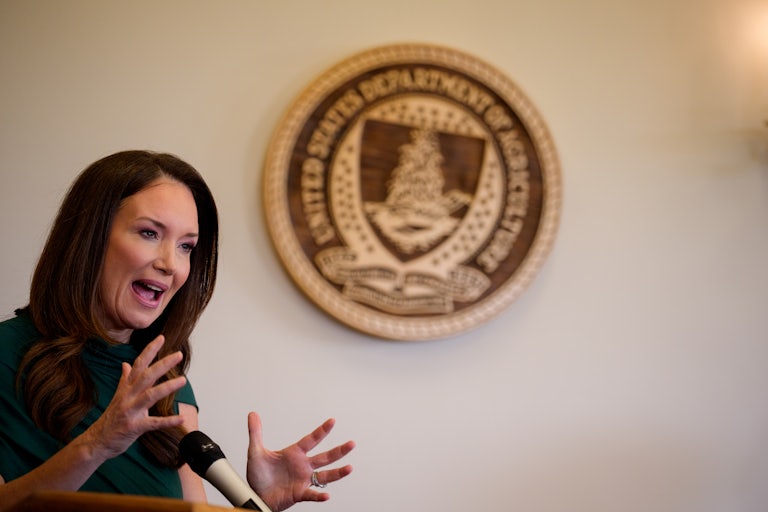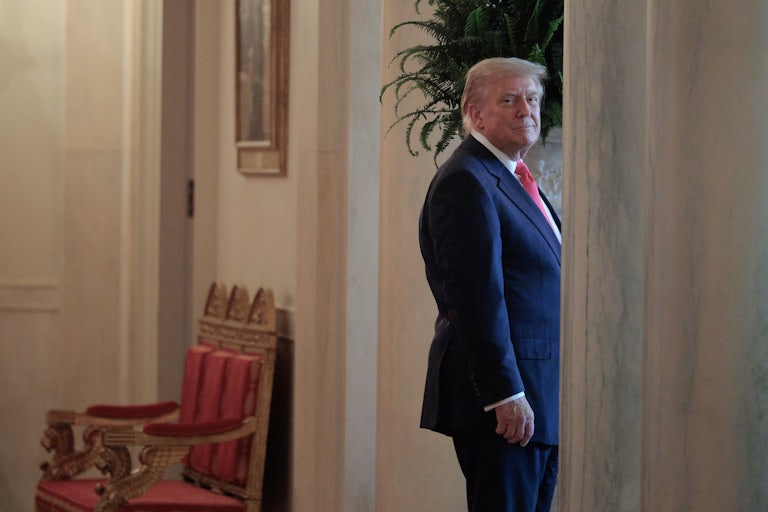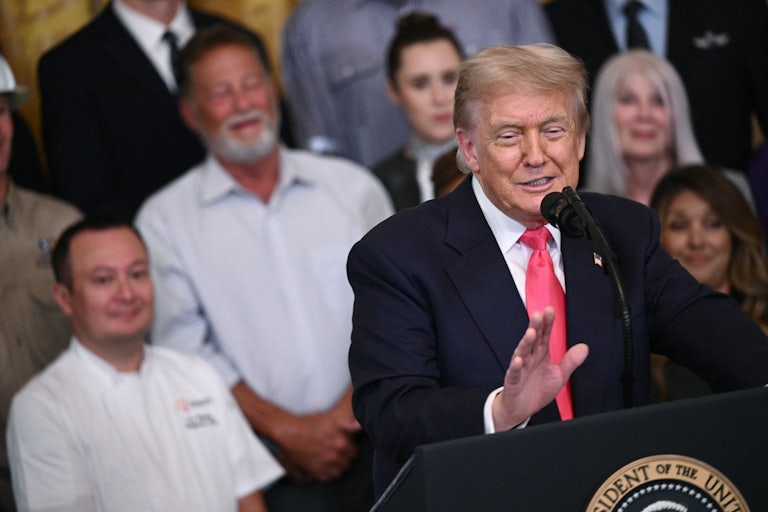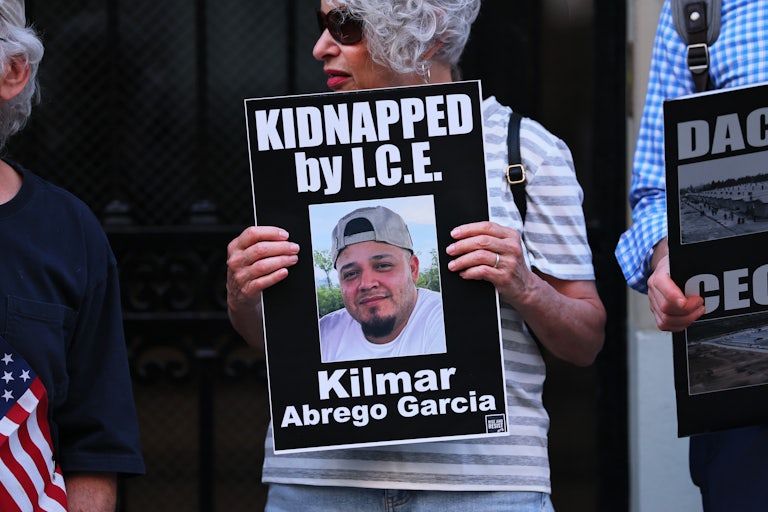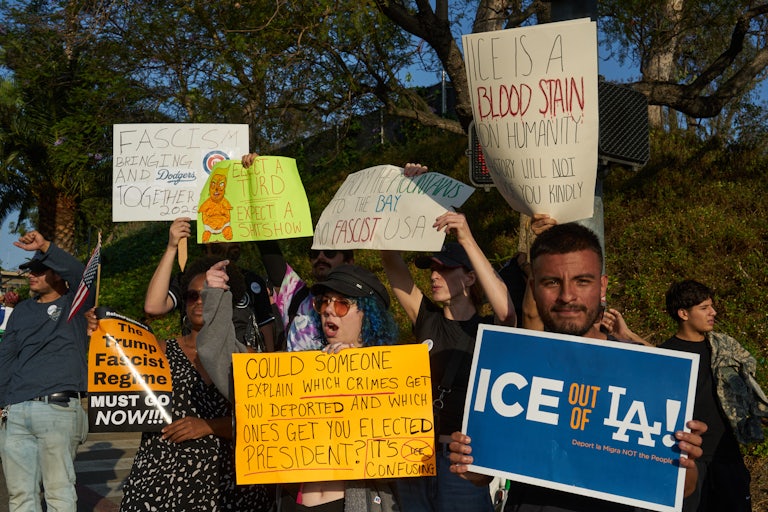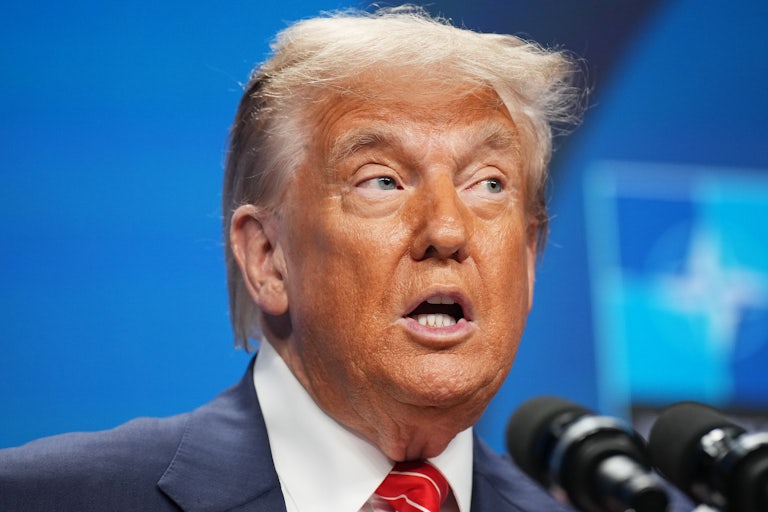Supreme Court Caves to Trump in Ominous Birthright Citizenship Ruling
The Supreme Court has just limited the ability of lower courts to rein in Donald Trump’s anti-constitutional orders.
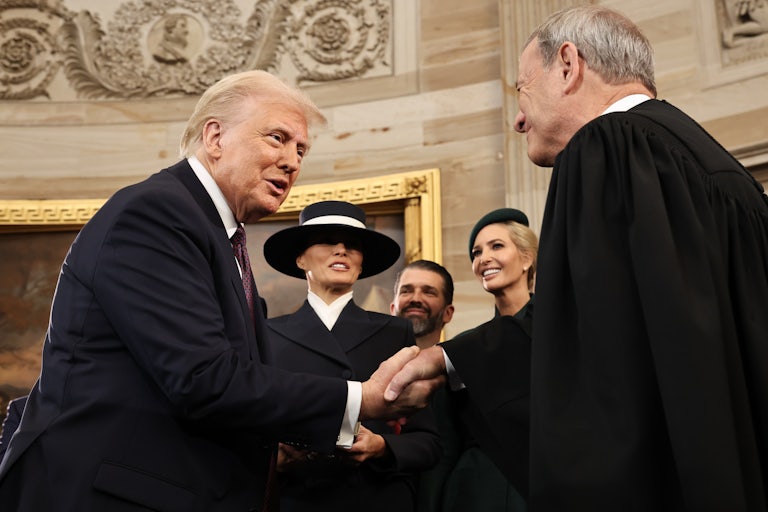
The Supreme Court on Friday delivered Donald Trump a win in his ongoing war against birthright citizenship—limiting lower courts’ ability to issue nationwide injunctions, effectively eroding their ability to rein in anti-constitutional orders.
In a 6–3 decision, the court did not rule on the constitutionality of Trump’s January 20 executive order on birthright citizenship, which seeks to deny automatic citizenship to children born on U.S. soil to undocumented immigrants and those with temporary status.
However, the decision grants Trump’s request to do away with nationwide pauses on its enforcement. “Universal injunctions likely exceed the equitable authority that Congress has given to federal courts,” the court stated, in a decision written by Justice Amy Coney Barrett.
Joining Barrett were Chief Justice John Roberts and Justices Clarence Thomas, Samuel Alito, Neil Gorsuch, and Brett Kavanaugh. Liberal justices Sonia Sotomayor, Elena Kagan, and Ketanji Brown Jackson all dissented.
Sotomayor said that the “gamesmanship” in Trump’s request to stay the injunctions “is apparent and the Government makes no attempt to hide it. Yet, shamefully, this Court plays along.” Her dissent concludes: “With the stroke of a pen, the President has made a ‘solemn mockery’ of our Constitution. Rather than stand firm, the Court gives way. Because such complicity should know no place in our system of law, I dissent.”
Jackson filed a dissent agreeing with Sotomayor, but emphasizing that the court’s decision “is an existential threat to the rule of law.” The majority opinion, Jackson said, “gives the Executive the go-ahead to sometimes wield the kind of unchecked, arbitrary power the Founders crafted our Constitution to eradicate.”
Trump’s executive order was swiftly challenged in court—and rightly so, as it rides roughshod over the Fourteenth Amendment (and long-established Supreme Court precedent). Federal district courts in Massachusetts, Maryland, and Washington issued nationwide preliminary injunctions, preventing the government from enforcing a challenged policy not just against the parties involved in the lawsuit or people in a certain jurisdiction, but against everyone across the country.
This order blocks those universal injunctions—and gives Trump a powerful new tool to roll back civil liberties nationwide.
